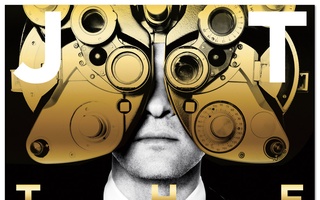It seems a little backwards that the printer word should take a cue from the silver screen, but if literature has an answer to the dark-comedy, it is certainly “A Thousand Morons,” a collection of short stories written by Quim Monzó and translated from Catalan by Peter Bush. It’s a delightful and sobering read that successfully portrays scenes of entertainment and melancholy. It is a somewhat jarring experience, but through brilliantly eclectic prose, absorbing characters, and unique yet complementary storylines, Monzó manages to invite applause more than head scratching.
One quality that unites the discrete stories is Monzó’s frequent use of something you might call literary pivots. In the majority of his stories, there is a pin-pointable moment where things veer toward the bizarre. In “Mr. Beneset,” a run-of-the-mill account of visiting an elderly parent is turned on its ear in an instant. Upon entering his father’s nursing home quarters, the narrator says: “He is straightening some lingerie, black and cream lingerie, the sort the French call culottes and the English French knickers.” In “I’m Looking out of the Window,” an account of clipping one’s nose hairs takes a turn for the macabre: “I would carefully place the scissors on the lobe of this same left ear and all at once close them quickly in order to get a clean cut. Half the ear would sail through the air and land on the kitchen counter.” These abrupt switches lend Monzó’s tales an air of constantly refreshing themselves. Even as we come to anticipate his pivots, the thought that one is coming keeps us on our toes.
The deftness with which Monzó varies his style further precludes monotony. He is like that friend who somehow manages to look good in anything he tries on. Simply beautiful sentences abound in “A Thousand Morons,” but where gorgeous lines by the same author will usually have the same flavor, Monzo’s are enchantingly distinct. In “Love is Eternal,” Monzó pulls off romantic writing with apparent ease, creating prose that is rife with imagery and arresting in its lyricism. The frank, wistful style Monzó adopts for “The Coming of Spring” lends the tale an emotional heft that astounds despite its potentially draining effect. The contrast between these styles is exemplified in descriptions as different as “a rain that threatened to last till dusk was falling” and “sides of bedsheets that belong to the ghosts of all who have died in the same room and who never cease to walk from one corner to another, grumbling.” Each boasts a beauty in both imagery and word choice that is wholly its own. Appreciation of the lines is augmented by the knowledge that ones precisely like them are unlikely to surface again.
Monzó is equally adept at writing stories meant to shock the reader. In angling for this reaction, he assumes an eerie objectivity. In “Saturday,” he writes, “She takes [the scissors] out and jabs the sharpest point at the skin on the thumb of her left hand, near the nail, and once she has finally made an incision, she puts the scissors down and with her right hand gradually starts to pull the skin away.” Monzó describes this woman’s appalling act with the same straightforward detachment as if she were baking a cake. Such spine-tingling passages make Monzó’s antiseptic delivery of caustic material excruciatingly effective.
It may surprise anyone who catches a glimpse of the cover of “A Thousand Morons” (it features a disembodied bra and moustache) to learn that it is a collection characterized by morbidity. In fact, close to half of the stories included in “A Thousand Morons” are at least peripherally concerned with death. A man considering cataract surgery asks his son, “Why invest all that time and have all those headaches if he knows he’s not got much time left and what little he has is far too much anyway?” A husband and wife describe their super-efficient suicide pact: “Well, as I’ve got two buckets and each holds ten pints, when we cut our veins we will fill the two buckets and then no one will see any blood coming up in any shower tray.” This sort of matter-of-fact moroseness surfaces repeatedly in Monzó’s collection. The response provoked by lines in this vein is powerful—we are at once dismayed by the prospect presented, and disturbed by the nonchalance in which it is couched. Monzó’s ability to evoke such strong emotions simultaneously further displays his adroitness as a writer.
“A Thousand Morons” would be too dark were it not for its highly strategic arrangement: the longest and most depressing story in the bunch is succeeded by three exceptionally short and humorous ones. These briefer efforts are entertaining in the extreme. Monzó’s characters hurl delicious insults like “You, Toni, are but a sample, a grain of sand from the interminable beach of universal discord.” This kind of gorgeous haranguing will make a masochist out of the most self-loving reader. Oh, to be insulted thus!
Short stories are often hampered when authors attempt to cram one hundred pages worth of character development into ten. “A Thousand Morons” is refreshingly devoid of such excess. Take this passage from “I’m Looking out of the Window”: “A kiss from my son, for example. I don’t enjoy the softness of his cheeks or the happiness in his eyes, because I have to be careful nothing happens to him and warn him of all the dangers in life; not to climb over the balcony rail, not to get into a stranger’s car and to chew each mouthful of sandwich twenty times.” The amount of characterization Monzo manages to pack into a single sentence is extraordinary. Very little concrete information is revealed about the man who narrates the story “I’m Looking out of the Window,” yet in the space of 63 words Monzó makes us feel that we know him intimately.
This is not a book made to be read in fits and starts as you wait for a train or cappuccino. “A Thousand Morons” is short enough that it can be read it one sitting, and is probably best experienced in this way. This may be an assemblage of disparate tales, but the cohesiveness of the collection as a whole is such that each story is best appreciated if the ones that precede it remain fresh in mind. If you find yourself glued to the couch in a post-Thanksgiving tryptophan malaise, this may be the perfect book to recharge your mind.
Read more in Arts
Winter Wish ListRecommended Articles
-
 ‘A Thousand Suns’ Gleams With Vision and Tension
‘A Thousand Suns’ Gleams With Vision and Tension -
Don’t Ask, Don’t TeleviseThe demise of “Don’t Ask, Don’t Tell” won’t usher in a new era of common sense and tolerance across the board.
-
Harvard's Fight Song Among the BestEvery year when this season finally comes around, college fans rejoice as the sounds of their fight songs take over football stadiums across the country.
-
 Part Two of "20/20" Is A Bleary Follow-Up
Part Two of "20/20" Is A Bleary Follow-Up -
 Harvard Has A Fight Song?
Harvard Has A Fight Song?













